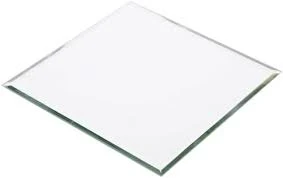

Understanding IGU The Benefits of Insulated Glass Units
In the realm of modern architecture and construction, energy efficiency and comfort are paramount. One of the key components in achieving these goals is the use of Insulated Glass Units (IGUs). These advanced glazing systems are designed to enhance thermal performance, reduce noise pollution, and improve building aesthetics. This article delves into what IGUs are, their construction, benefits, and applications.
What Are Insulated Glass Units?
An Insulated Glass Unit (IGU) is essentially a sealed assembly of two or more glass panes, separated by a spacer bar and filled with inert gas, typically argon or krypton. The space between the panes is hermetically sealed to prevent moisture and air exchange, creating a highly effective insulation barrier. This design allows IGUs to significantly reduce heat transfer, making them a favored choice for residential and commercial buildings alike.
Construction of IGUs
The construction of an IGU is a meticulous process. Each pane of glass is treated to reduce reflection and enhance thermal performance. The spacer bars, usually made of aluminum or warm-edge materials, are crucial for maintaining the distance between the glass panes and for providing structural integrity. Manufacturers also incorporate desiccants into the spacer to absorb any moisture that may enter the unit, ensuring clarity and longevity. The final step involves sealing the unit with a robust sealant to protect it from environmental factors.
Benefits of Insulated Glass Units
1. Energy Efficiency One of the primary advantages of IGUs is their ability to improve energy efficiency significantly. By reducing heat transfer, they help maintain a stable interior temperature, which leads to lower heating and cooling costs for homeowners and businesses.

2. Noise Reduction IGUs provide sound insulation, making them ideal for buildings located in noisy environments. The multiple panes of glass and the airspace between them work together to dampen outside noise, creating a more tranquil indoor environment.
3. UV Protection Insulated glass units can be treated to block harmful ultraviolet (UV) radiation. This feature helps protect furniture, flooring, and artwork from fading, preserving their appearance and extending their lifespan.
4. Condensation Control The insulating properties of IGUs reduce the likelihood of condensation forming on the interior surfaces of the glass. This is particularly beneficial in regions with high humidity levels, as it reduces the risk of mold growth and improves indoor air quality.
5. Aesthetic Versatility IGUs come in various styles, shapes, and thicknesses, allowing for customization that aligns with the aesthetic vision of any architectural project. Whether for sleek modern buildings or traditional homes, insulated glass can be tailored to enhance the overall design.
Applications of IGUs
Insulated glass units are versatile and widely used in various applications. They are commonly found in residential windows, commercial storefronts, and curtain walls. Additionally, they are increasingly used in energy-efficient buildings aiming for certifications such as LEED (Leadership in Energy and Environmental Design). Due to their performance and aesthetic qualities, IGUs have become a staple in sustainable design practices.
Conclusion
In conclusion, Insulated Glass Units represent a significant advancement in window and glazing technology. Their ability to enhance energy efficiency, provide noise reduction, and offer UV protection makes them an essential component in modern construction. As the demand for energy-efficient and environmentally friendly building solutions continues to grow, IGUs will undoubtedly play a crucial role in shaping the future of architecture. By investing in IGUs, builders and homeowners can create spaces that are not only comfortable and stylish but also sustainable and efficient.